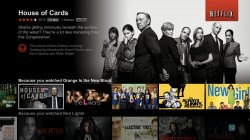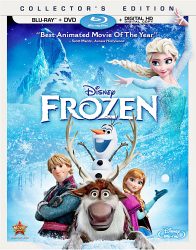Seventeen years ago today, I was sitting in front of a computer monitor, very much smaller and squarish than my current one, typing things, uploading files and images and wondering if anyone will visit my new website when I launch it tomorrow. Tomorrow, Digital Digest turns 17 (almost old enough to vote, and drink here in Australia), and it’s been a roller-coaster of a ride. Things have changed so much in that time, from when DVDs first started appearing on store shelves in 1999, to now where the latest discs now has 24 times more pixels (and costs half as much at least). That is, if you’re still using discs and not downloading or streaming – legally now, as opposed to grainy AVI files from the days past. So much as changed, but so much remains the same – . The formats have changed (and we at Digital Digest have changed with it), but we’re still buying and watching movies, playing games, listening to music – but maybe doing a lot more of it now, and in much better quality, of course. Here’s to another seventeen years!
As for news, there was a lot this week for some strange reason. Let’s get started!
![]()
So season six of Game of Thrones has ended. For those that haven’t watched it, don’t worry, no spoilers from me, other than to say that it was a hell of a season, and the finale was no different. What is different this time is the complete lack of any new piracy records being broken. It’s not that people have stopped downloading GoT though – it will still end up being the most pirated TV show in 2016 – it’s just that with HBO’s new anti-piracy measures, it’s a lot harder now for a single torrent to break the record. HBO has been asking torrent sites to remove torrents for the show, but new torrents are uploaded, more are removed, and then more are uploaded. So people are still managing to download the show and in great numbers, but it’s a lot harder now to break the record. So really, HBO’s actions won’t really have a great impact on piracy, but it does help to prevent more “GoT breaks piracy record” news stories, which may convince shareholders that something is being done about the problem.
This is perhaps the rationale behind VR gaming company Oculus’s move to add DRM to software purchased from the Oculus store, to prevent them from working on non Oculus headsets. This is despite earlier promises from the company not to do exactly this. The move serious hampered work on the Revive hack, which attempts to make Oculus work on the HTC Vive headset. The developers behind Revive have been patching and re-patching, playing a game of cat-and-mouse with Oculus to bypass the DRM in recent weeks, but then out of nowhere, Oculus appears to have removed the DRM.
Maybe not out of nowhere, since there was a sizable public backlash to Oculus’s attempt to go back on their word. One more example of how complaining on the Internet can actually get things done!
There’s another DRM related story this week that showed why DRM, and why protecting circumvention by law, is a bad idea. A bug in the DRM used by Google Chrome to stream protected content, such as Netflix, has emerged, a bug that apparently has been there for the better part of five years. The bug allows video content that is for streaming to be downloaded in decrypted form, which was the only thing the DRM was supposed to prevent (queue the “you had one job” meme). The reason that the bug has existed so long may be due to several factors, but a disturbing possibly could be related to DRM anti-circumvention law, and how it prevents security researchers from finding bugs like this. You see, trying to break a DRM, even if it’s to find a bug with the protection system, is considered illegal in many places. This does not prevent pirates from breaking the DRM for their own purposes because they don’t care about the law, but does prevent researchers from finding and fixing security holes. How’s that for messed up?
So while Netflix are working hard to create an offline mode, it appears Chrome’s DRM has already done it for us!
![]()
Now for something that fits nicely into the thoughts I’ve tried to express in the intro. The transition to 4K via Ultra HD Blu-ray was always a tricky one. In this day and age, do people still want a new disc format, even if it is to carry an absolutely pristine transfer? The early answer appears to be a ‘Yes’, with the latest stats showing that Ultra HD Blu-ray is better than plain old Blu-ray was at the same point in its history. This is despite there only being a single Ultra HD Blu-ray player on the market in the US, and only a handful of TVs. But to be fair, that single UHD player is a lot cheaper than the first Blu-ray player, and 4KTVs aren’t carrying nearly the same premium as you might expect from say when SD became HD.
I guess the marketing has also helped. Not only are there a good number of UHD releases already (including some big titles, like ‘Deadpool’), it also helps that the new format carries the well known “Blu-ray” branding. And the fact that Netflix and others have already been laying the groundwork for 4K for some time now, it all made things easier for the new disc format.
Not that Blu-ray is about to become obsolete. For each Ultra HD Blu-ray copy being purchased, dozens of standard Blu-ray will be sold, and that’s likely to continue for some time. To appreciate just how much work UHD Blu-ray has to do, just take a look at the top selling Blu-ray titles of all time. Based on the number of units sold, ‘Frozen’ is the title to beat, with more than 7.1 million copies sold in the US alone. ‘Avatar’ wasn’t too far behind, and it actually earned more than ‘Frozen’ in terms of total revenue.
The top earner of all time won’t be a surprise to those that read these pages. ‘Star Wars: The Complete Saga’, the box set that features the first six movies in the franchise, has earned more than $200 million already. While that title is a Fox property, Disney’s ‘The Force Awakens’ is already the third best selling Blu-ray in terms of discs sold, and this despite it only being available for around three months. Disney are on to a winner here!
In fact, Disney titles occupy the top 50 more frequently than any other studio, with no less than 18 entries. In fact, three of the top four belonged to Disney, with it’s relationship with Marvel, Lucasfilm and Pixar all proving to be extremely productive. Its re-releases of timeless classics, such as ‘Snow White’ and ‘The Lion King’, has also been very profitable.
And with more Star Wars and Marvel films coming, things can only get better for the company.
——
So that’s that for this pre-anniversary edition of the WNR. Nothing too special, I have to admit, and I’m not planning anything special either (not just saying that so to lay the groundwork for some surprises – I literally forgot about the anniversary until just yesterday, which is something I seem to do every year).





